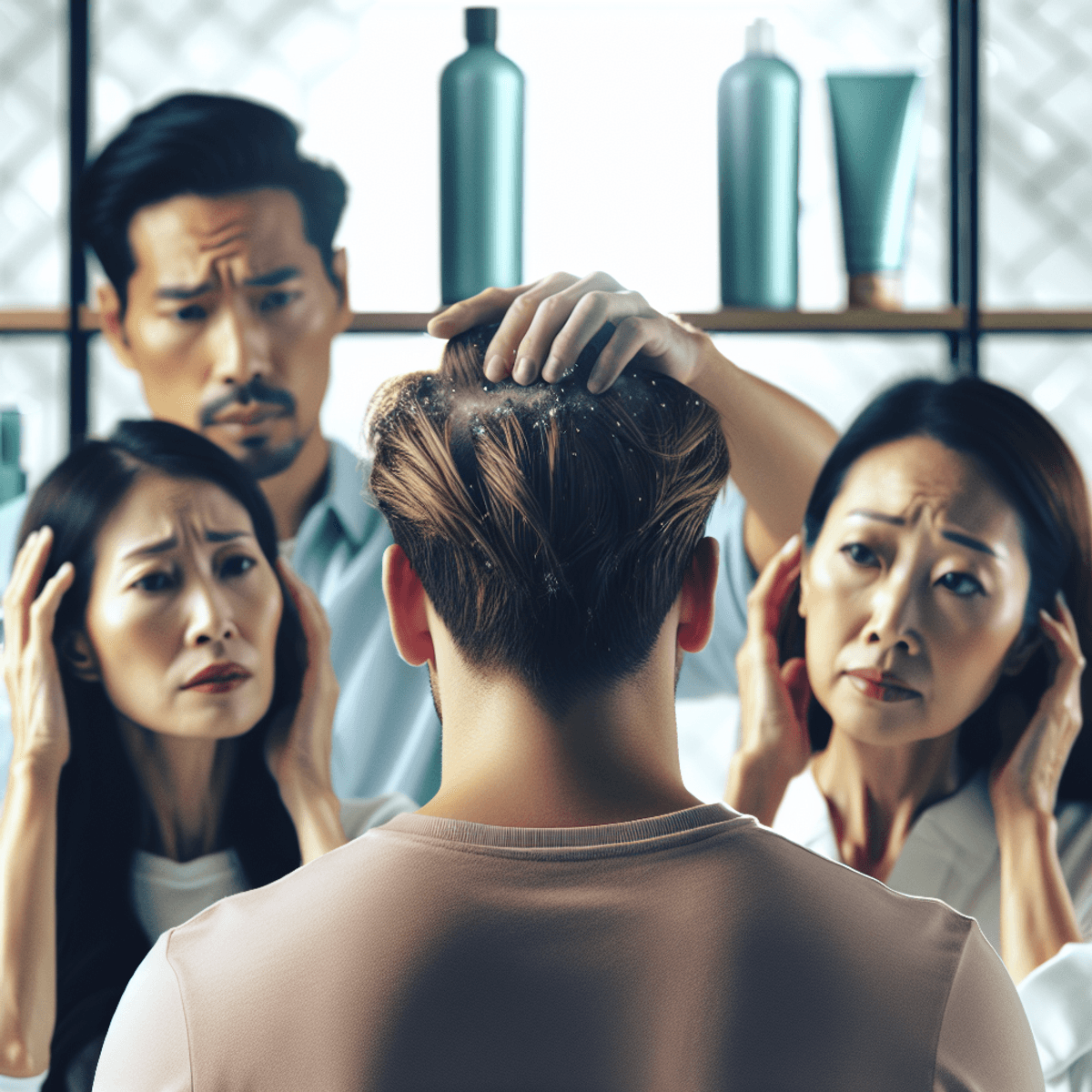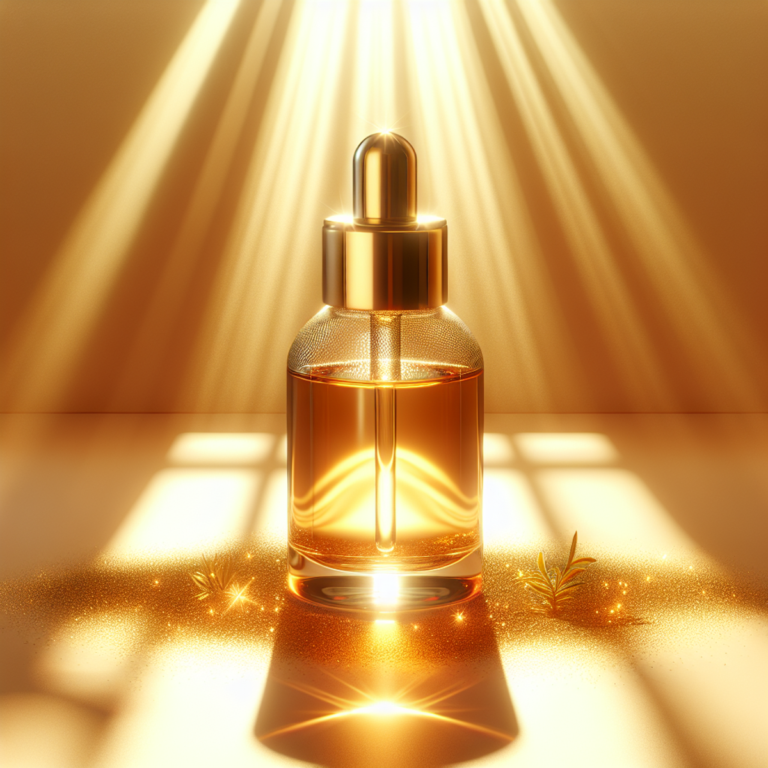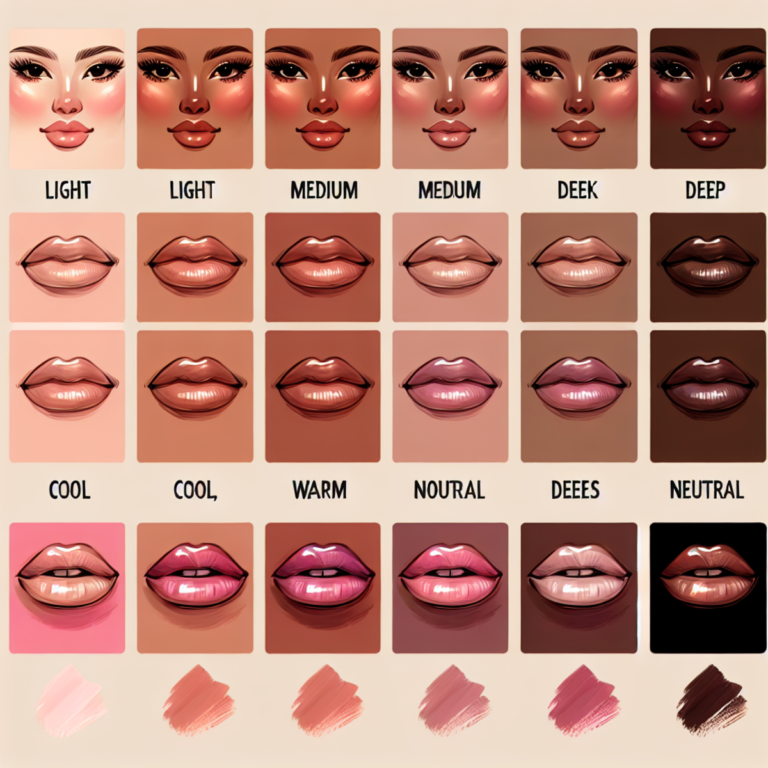Ways to Get Rid of Dandruff

Introduction
Dandruff is a common scalp condition that affects nearly half of the adult population worldwide. Characterized by itchy, white flakes, it can significantly impact individuals’ self-esteem and confidence.
Prevalence of Dandruff
- Approximately 50% of adults experience dandruff at some point in their lives.
- The condition can arise from various causes, including dry skin, seborrheic dermatitis, sensitivity to hair products, and the overgrowth of Malassezia yeast.
Addressing dandruff is crucial for maintaining a healthy scalp and overall well-being. A neglected scalp can lead to further irritation and discomfort, potentially exacerbating other skin conditions.
By understanding the causes of dandruff and exploring effective solutions, you can take proactive steps toward achieving a flake-free scalp. Whether you seek to eliminate dandruff through over-the-counter treatments or natural remedies, knowing how to get rid of dandruff effectively will empower you on your journey to improved scalp health.
Understanding Dandruff
Dandruff is not a one-size-fits-all condition. It can be classified into two primary types:
1. Dry Dandruff
This type is characterized by small, white flakes that easily shed from the scalp. Dry dandruff often results from dry skin, especially during colder months or due to excessive washing with harsh shampoos.
2. Oily Dandruff
Oily dandruff presents with larger, yellowish flakes that cling to the scalp and hair. This type is associated with seborrheic dermatitis, a condition linked to an overproduction of oil and the presence of Malassezia, a yeast that thrives in oily environments.
Understanding the symptoms associated with dandruff helps identify its presence and severity. Common symptoms include:
- Itchiness: A frequent complaint among individuals with dandruff, often exacerbated by scratching.
- Visible Flakes: These may appear on the scalp and can fall onto clothing, leading to embarrassment in social situations.
- Redness or Inflammation: In some cases, irritation may occur around the scalp area, particularly in oily dandruff.
Several factors contribute to dandruff formation. These include:
- Dry Skin: A lack of moisture can cause flakes to form.
- Sensitivity to Hair Products: Reactions to certain chemicals can irritate the scalp.
- Hormonal Changes: Fluctuations in hormones may influence oil production on the scalp.
Addressing these factors can help in determining how to get rid of dandruff effectively. You might wonder how do you get rid of dandruff? Solutions range from over-the-counter treatments to natural remedies, each tailored to specific types of dandruff and individual needs.
Identifying whether you are dealing with dry or oily dandruff plays a crucial role in selecting appropriate treatments. Understanding these characteristics sets the foundation for effective management strategies against this common yet often frustrating condition.
Over-the-Counter Treatments for Dandruff
Dealing with mild to moderate dandruff often starts with over-the-counter (OTC) treatments. These anti-dandruff shampoos are widely available and can effectively manage symptoms such as flaking and itchiness. Regular use typically leads to noticeable improvements within a few weeks.
Key Active Ingredients in Anti-Dandruff Shampoos
Understanding the active ingredients in these shampoos is crucial for selecting the right one for your specific needs. Here are some commonly found ingredients and their benefits:
- Pyrithione Zinc: This ingredient possesses antifungal properties, targeting the Malassezia yeast that contributes to dandruff. It helps reduce scalp inflammation and flakes.
- Salicylic Acid: Known for its exfoliating properties, salicylic acid helps remove dead skin cells from the scalp. This action prevents buildup, which can worsen itching and flaking.
- Selenium Sulfide: Often used for more severe cases of dandruff, it reduces the growth of fungi on the scalp. It also helps decrease oiliness, making it suitable for those with oily dandruff.
- Coal Tar: A traditional treatment that slows down skin cell turnover. This can be beneficial for heavy flaking and is often recommended for those with seborrheic dermatitis.
- Ketoconazole: An antifungal agent effective against various types of fungi that cause dandruff. It is particularly useful for persistent cases that don’t respond to other treatments.
Recommendations for Choosing the Right Shampoo
When selecting an anti-dandruff shampoo, consider these factors:
- Scalp Type: Identify whether your scalp tends to be dry or oily. If you have an oily scalp, opt for shampoos containing selenium sulfide or coal tar. For a dry scalp, pyrithione zinc or salicylic acid may be more suitable.
- Severity of Dandruff: Mild cases may respond well to shampoos with pyrithione zinc or salicylic acid. For moderate to severe cases, consider those containing ketoconazole or coal tar.
- Hair Type: Some shampoos can be harsh on certain hair types. If you have color-treated or curly hair, look for gentler formulas that still contain effective active ingredients.
- Fragrance Sensitivity: Be aware of potential sensitivities to fragrances in hair products. Hypoallergenic options are available if you experience irritation from scented products.
Utilizing OTC treatments can significantly improve your scalp health and overall comfort. Understanding the unique benefits of each active ingredient aids in making an informed decision tailored to address your specific needs and preferences.
Prescription Treatments for Severe Dandruff Cases
Severe dandruff cases may require more than just over-the-counter solutions. If you experience persistent symptoms despite using OTC treatments, it’s crucial to seek professional help. Signs that indicate the need for prescription-strength treatments for dandruff include:
- Persistent Itching and Flaking: If symptoms do not improve after several weeks of OTC treatment.
- Scalp Redness or Inflammation: Indicating possible underlying conditions like seborrheic dermatitis.
- Discomfort or Pain: Any signs of discomfort warrant a visit to a healthcare provider.
Healthcare professionals can recommend several effective prescription treatments, which may include:
Topical Corticosteroids
- Purpose: Reduce inflammation and soothe irritation on the scalp.
- Common Options: Clobetasol propionate and fluocinolone acetonide are often prescribed for their strong anti-inflammatory properties.
- Usage Guidelines: Typically used for a short duration to avoid side effects such as skin thinning.
Antifungal Agents
- Purpose: Target fungal overgrowth that may contribute to dandruff, particularly Malassezia yeast.
- Common Options: Ketoconazole and ciclopirox shampoos are frequently prescribed for their antifungal efficacy.
- Application Tips: Regular use as directed by your healthcare provider is essential for optimal results.
Combination Treatments
Some healthcare providers may recommend a combination of treatments tailored to your specific condition. This approach can enhance effectiveness, especially in stubborn cases.
The ideal course of action involves consulting with a dermatologist who can diagnose the severity of your dandruff and recommend an appropriate treatment plan. Addressing severe dandruff not only improves scalp health but also contributes positively to overall well-being.
Natural Remedies for Mild Dandruff Cases
1. Tea Tree Oil
Tea tree oil is a popular choice among natural remedies for dandruff. Its antimicrobial and antifungal properties make it effective against the fungi that can lead to dandruff. This essential oil has been used for centuries to treat various skin conditions, including dandruff, making it a trusted home remedy for many individuals.
Benefits of Tea Tree Oil:
- Antifungal Action: Tea tree oil combats Malassezia, the yeast-like fungus often responsible for dandruff. By inhibiting its growth, tea tree oil reduces the occurrence of flakes.
- Soothing Itchiness: The oil helps alleviate the itchiness associated with dandruff, promoting comfort on the scalp.
How to Use Tea Tree Oil:
- Dilution: Always dilute tea tree oil before applying it directly to your scalp. A common ratio is 1-2 drops of tea tree oil mixed with a carrier oil like coconut or olive oil.
- Application Method:
- Part your hair into sections to ensure even distribution.
- Apply the diluted mixture directly onto your scalp.
- Massage gently to enhance absorption and stimulate blood circulation.
- Leave-In Treatment: Allow the mixture to sit on your scalp for at least 30 minutes before washing it out with a mild shampoo. For best results, consider using this treatment 2-3 times a week.
- Shampoo Addition: Another option involves adding a few drops of tea tree oil directly to your regular shampoo. This method allows you to incorporate its benefits into your routine without added steps.
- Patch Test: Before widespread use, perform a patch test on a small area of skin to check for potential allergic reactions or sensitivity.
Utilizing tea tree oil as part of your dandruff management strategy can significantly improve scalp health while providing relief from symptoms. As you explore additional natural remedies for dandruff, remember that consistency in application is key for achieving optimal results.
2. Coconut Oil
Coconut oil is a popular choice among natural remedies for dandruff due to its moisturizing properties. Individuals with dry scalps often experience itching and flaking, making coconut oil an effective home remedy for dandruff management.
Benefits of Coconut Oil:
- Moisturizes the Scalp: Coconut oil penetrates hair follicles, providing hydration that can soothe dry, flaky skin.
- Anti-inflammatory Properties: It helps reduce inflammation associated with scalp irritation, promoting a healthier environment for hair growth.
Application Methods:
- Direct Application:
- Warm a small amount of coconut oil in your hands.
- Massage it directly onto the scalp, focusing on areas prone to dryness.
- Leave it on for at least 30 minutes or overnight for deeper penetration before washing out.
- Mix with Essential Oils:
- Combine coconut oil with essential oils like tea tree oil for added antifungal benefits.
- Use a ratio of 2 tablespoons of coconut oil to 5 drops of tea tree oil.
Precautions:
- Conduct a patch test before full application to avoid potential allergic reactions.
- Avoid using excessive amounts, as it may lead to greasiness or buildup on the scalp.
Incorporating coconut oil into your scalp care routine can significantly enhance scalp health while addressing dandruff concerns effectively.
3. Aloe Vera Gel
Aloe vera gel is well-known for its soothing properties, making it an effective home remedy for dandruff. Its natural anti-inflammatory and moisturizing qualities can help relieve the itching and irritation associated with this common scalp condition. Many people looking for natural remedies for dandruff find aloe vera to be a gentle yet powerful option.
Benefits of Aloe Vera:
- Reduces inflammation and soothes the scalp
- Provides moisture without leaving an oily residue
- Contains antibacterial and antifungal properties which may combat dandruff-causing fungi
Incorporating Aloe Vera into Your Scalp Care Routine:
- Extract fresh aloe vera gel from the leaves of the plant.
- Apply the gel directly onto your scalp, focusing on areas that are itchy or flaky.
- Leave it on for about 30 minutes before rinsing with a mild shampoo.
- Mix aloe vera gel with a few drops of tea tree oil to enhance its antifungal effects.
- Apply the mixture to your scalp and hair, allowing it to sit for 20-30 minutes before washing out.
These methods provide a straightforward approach to managing dandruff naturally. Including aloe vera in your routine supports scalp health while offering relief from symptoms. For those preferring a holistic approach, aloe vera serves as an excellent ally in the journey to discover ways to get rid of dandruff.
4. Apple Cider Vinegar Rinse
Apple cider vinegar is a popular home remedy for dandruff because it can help balance the pH of your scalp and create a healthy environment for hair growth. The acidity of apple cider vinegar helps restore the natural pH of the scalp, which may reduce itching and flaking caused by dandruff.
Benefits of Apple Cider Vinegar:
- Promotes a balanced scalp environment
- Reduces buildup of dead skin cells
- May inhibit the growth of fungi responsible for dandruff
How to Use Apple Cider Vinegar as a Rinse:
- Dilution Ratio: Mix one part apple cider vinegar with two parts water. This helps prevent irritation while maximizing its benefits.
- Application Technique:
- After shampooing, pour the diluted mixture over your scalp.
- Gently massage it into your scalp for a few minutes.
- Rinse thoroughly with cool water.
Adding this rinse to your hair care routine can work well with other natural remedies for dandruff, providing an effective way to manage mild cases while improving the overall health of your scalp. Using apple cider vinegar may bring you closer to finding relief from bothersome flakes and itchiness, making it one of the preferred ways to get rid of dandruff naturally.
5. Baking Soda Exfoliation Scrub
Baking soda is an effective natural remedy for dandruff due to its exfoliating properties. This home remedy for dandruff helps remove dead skin cells from the scalp’s surface, preventing buildup and promoting a healthier scalp environment.
How to Make a Baking Soda Scrub
To create a baking soda scrub, follow these steps:
1. Ingredients Needed:
- 2 tablespoons of baking soda
- 2 tablespoons of water (or coconut oil for added moisture)
- Optional: 1 tablespoon of lemon juice for its antibacterial properties
2. Preparation:
- In a small bowl, mix the baking soda with water (or coconut oil) until you achieve a paste-like consistency.
- If using lemon juice, add it to the mixture.
3. Application:
- Before shampooing, apply the scrub directly to your damp scalp.
- Gently massage the mixture into your scalp using circular motions for about 5-10 minutes. This helps lift away flakes and unclog pores.
- Rinse thoroughly with warm water and follow up with your regular shampoo.
4. Frequency:
Use this scrub once or twice a week for optimal results.
Baking soda can effectively complement other natural remedies for dandruff, such as tea tree oil benefits, by enhancing scalp health and reducing irritation. Implementing this simple method can lead you towards healthier hair and a more confident self-image.
Lifestyle Changes to Support Dandruff Management Efforts
Maintaining a healthy scalp extends beyond topical treatments. Lifestyle changes play a crucial role in managing dandruff effectively. Two significant factors include dietary changes for scalp health and stress reduction techniques.
The Role of Diet in Scalp Health
The food you consume can significantly influence the condition of your scalp. A balanced diet helps maintain a healthy ecosystem, reducing inflammation-related issues like itching or redness associated with conditions such as seborrheic dermatitis. Key nutrients that support optimal scalp function include:
- Zinc-rich Foods:
- Zinc is vital for skin health and can help control oil production on the scalp.
- Include nuts (like cashews and almonds), seeds (pumpkin and sunflower seeds), and legumes as part of your daily intake.
- Omega-3 Fatty Acids:
- These fatty acids have anti-inflammatory properties that can soothe irritated skin and promote moisture retention.
- Fatty fish, such as salmon, mackerel, and tuna, are excellent sources. For a plant-based option, consider flaxseeds or chia seeds.
Incorporating these foods into your meals may not only improve scalp health but also enhance overall well-being. Aim for a variety of fruits and vegetables to ensure you receive essential vitamins and minerals that promote skin vitality.
Stress Management Techniques for Healthy Scalps
Chronic stress can exacerbate existing scalp conditions like seborrheic dermatitis. Stress triggers hormonal imbalances that heighten inflammation levels, leading to increased flaking and itchiness. Effective stress management is essential in combating these symptoms. Consider the following techniques:
- Mindfulness Meditation:
- Practicing mindfulness helps you stay present and reduces anxiety levels.
- Spend a few minutes each day focusing on your breath or engaging in guided meditation sessions.
- Regular Exercise:
- Physical activity boosts endorphins, which can alleviate stress.
- Aim for at least 30 minutes of exercise most days, whether it’s walking, jogging, yoga, or any activity you enjoy.
- Adequate Sleep:
- Lack of sleep increases stress levels and may worsen dandruff symptoms.
- Establish a consistent sleep routine by going to bed and waking up at the same time each day to promote restful sleep.
- Breathing Exercises:
- Simple breathing techniques can help reduce immediate stress.
- Try inhaling deeply through your nose for four counts, holding for four counts, then exhaling slowly through your mouth for six counts.
Implementing these stress reduction techniques into your daily life can contribute significantly to better scalp health. By addressing both dietary habits and emotional well-being, you create an environment that supports effective dandruff management.
Maintaining a proactive approach towards lifestyle changes empowers you to take control of dandruff challenges while promoting overall health. Each small adjustment contributes positively to managing this common condition.
Establishing an Effective Scalp Care Routine Based on Individual Needs & Preferences
Creating a personalized approach to scalp care is essential for maintaining optimal conditions that prevent future dandruff flare-ups. Consider the following elements for an effective routine:
1. Regular Cleansing
Use a gentle, anti-dandruff shampoo tailored to your scalp type. For oily scalps, more frequent washing is beneficial. Dry scalps may require less frequent washes with hydrating products.
2. Moisturization
Incorporate moisturizing treatments to combat dryness. Products containing ingredients like coconut oil or aloe vera can help retain moisture and soothe irritation.
3. Protective Styling
Employ proper styling techniques to safeguard your hair from harsh weather conditions. Use hats or UV protectant sprays during sun exposure and avoid excessive heat styling.
4. Scalp Massages
Regularly massage your scalp to improve blood circulation. This promotes hair growth and helps distribute natural oils, aiding in the overall health of the scalp.
5. Dietary Considerations
A balanced diet rich in zinc, omega-3 fatty acids, and vitamins supports scalp health. Foods such as nuts, seeds, and fatty fish should be included regularly.
Maintaining this routine will not only help manage existing dandruff but also facilitate long-term healing. Prioritizing these practices fosters a healthier scalp environment while minimizing external factors that could hinder progress.
FAQs (Frequently Asked Questions)
What is dandruff and how does it affect individuals?
Dandruff is a common scalp condition characterized by the shedding of dead skin cells from the scalp, often leading to visible flakes in the hair. It can significantly impact an individual’s self-esteem and confidence due to its visible nature.
What are the different types of dandruff?
Dandruff can generally be categorized into two types: dry dandruff, which is associated with a dry scalp and flaking, and oily dandruff, which results from excess oil production on the scalp. Both types may cause itchiness and discomfort.
What over-the-counter treatments are available for dandruff?
Over-the-counter treatments for mild to moderate dandruff include anti-dandruff shampoos containing active ingredients like pyrithione zinc, salicylic acid, selenium sulfide, coal tar, and ketoconazole. These ingredients help reduce flaking and soothe the scalp.
When should I consider prescription treatments for dandruff?
If over-the-counter treatments do not provide relief for severe cases of dandruff, it may be time to seek professional help. Prescription options include topical corticosteroids and antifungal agents that target more persistent or severe symptoms.
What natural remedies can help with mild dandruff?
Natural remedies such as tea tree oil, coconut oil, aloe vera gel, apple cider vinegar rinses, and baking soda scrubs can be effective for mild dandruff. These remedies offer various benefits like moisturizing effects or pH balancing properties that promote a healthy scalp.
How can lifestyle changes support dandruff management?
Adopting a balanced diet rich in nutrients like zinc and omega-3 fatty acids can support scalp health. Additionally, stress reduction techniques may help prevent exacerbation of conditions like seborrheic dermatitis, which can contribute to increased flaking and itchiness.










